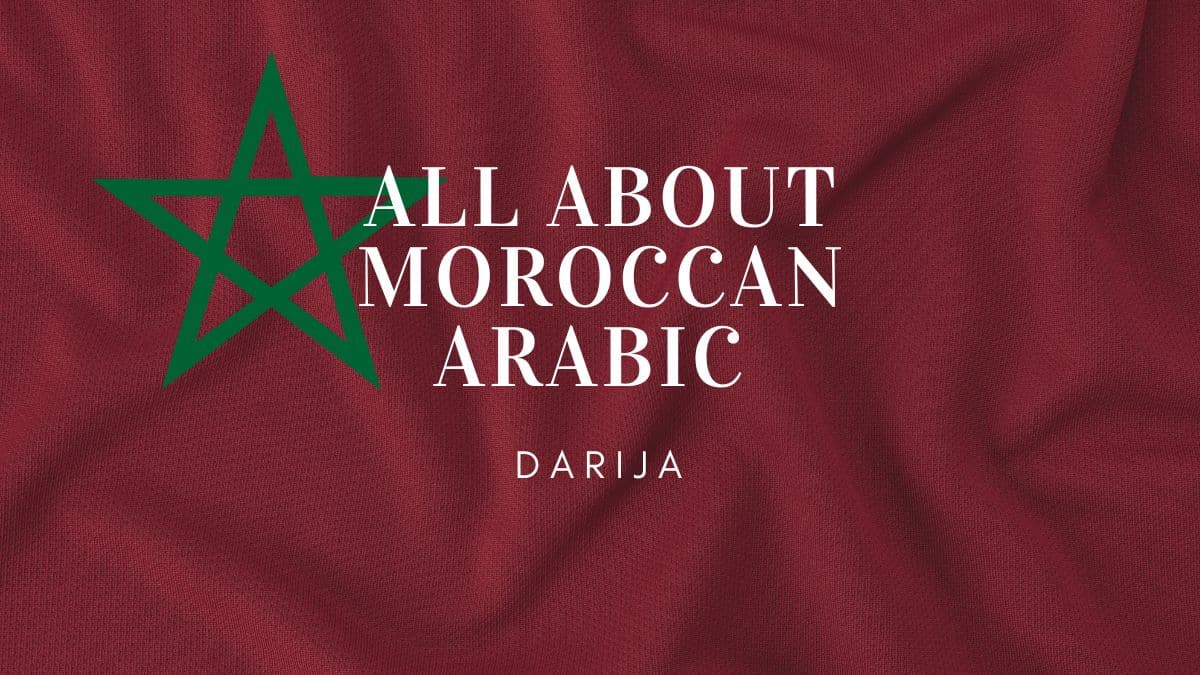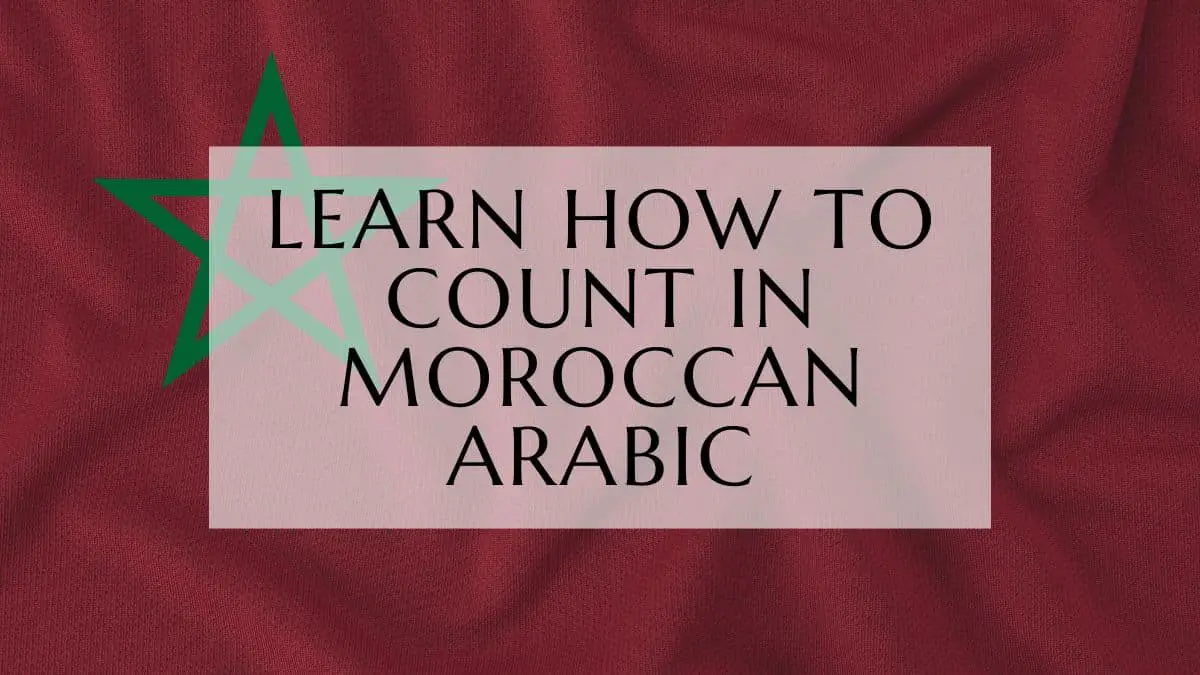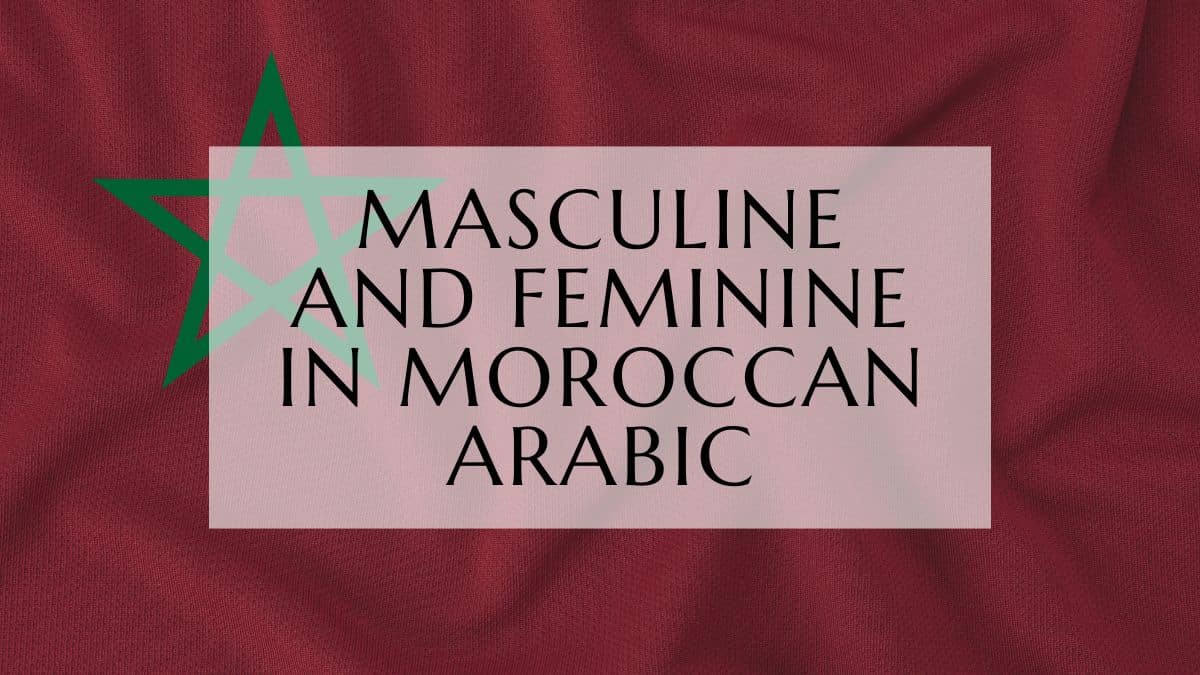In this lesson, we will talk about how to introduce yourself in Moroccan Arabic (with audio) and have an icebreaker into your first-ever Darija dialogue. You’ll learn how to ask someone about their name, age, nationality, and work, let’s get started!
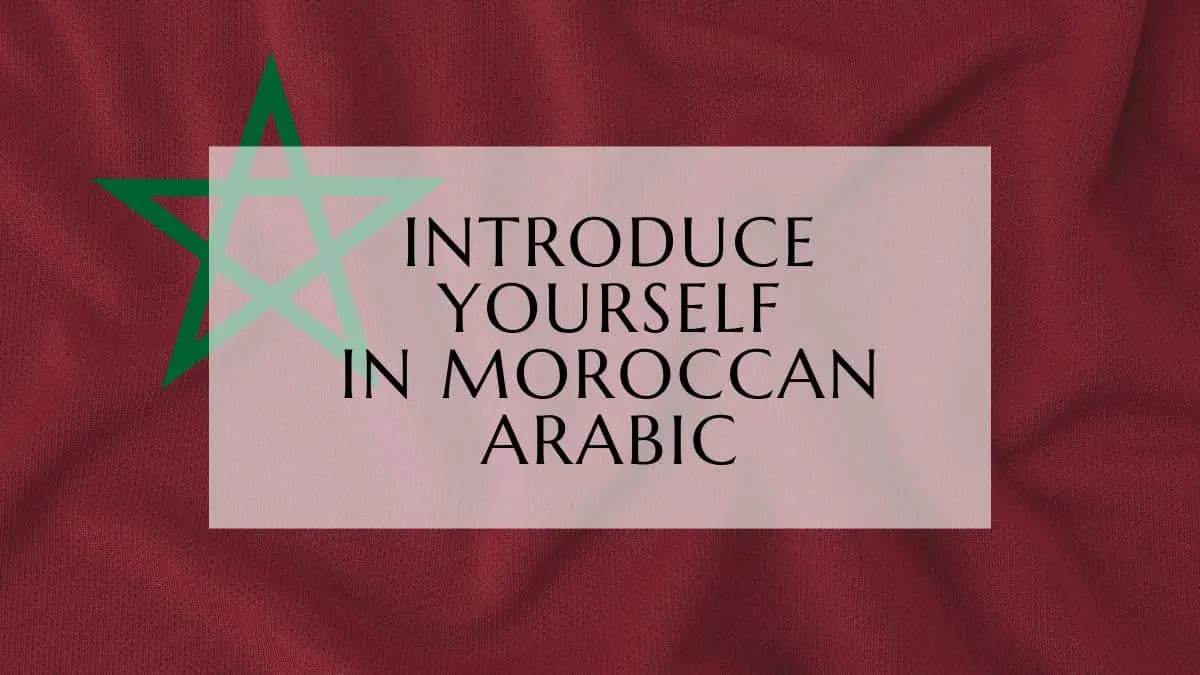
Introduce Yourself In Moroccan Arabic
| English | Transcribed Moroccan Arabic | Using Arabic Alphabet |
| What’s your name? | Shnu smitek? | شنو سميتك؟ |
| My name is… | Smiti… | سميتي… |
| My name is Oualid | Smiti Oualid | سميتي وليد |
| Where are you from? | Mnin nta? ( addressing a male) Mnin nti? (addressing a female) | منين نتا؟ / منين نتي؟ |
| I’m from… | Ana men… | أنا من… |
| I’m from Morocco | Ana men lmaghrib | أنا من المغرب |
| What’s your nationality? | Shnu hiya ljinsiya dyalek? | شنو هي الجنسية ديالك؟ |
| I’m … | Ana… | أنا… |
| I’m Moroccan | Ana maghribi | أنا مغربي |
| Where were you born? | Fin tzaditi? | فين تزاديتي؟ |
| I was born in… | Tzadit f … | تزاديت ف … |
| I was born in Nador, Morocco | Tzadit f Nador, lmaghrib | تزاديت ف الناظور، المغرب |
| How old are you? | Shhal f 3emrek? | شحال ف عمرك؟ |
| I’m… years old | 3endi … 3am (lit. I have … years) | عندي … عام |
| Where do you live? | Fin kat3ish? / kat3ishi? | فين كتعيش؟ / كتعيشي؟ |
| I live in … | Kan3ish f … | كنعيش ف … |
| I live in Nador | Kan3ish f Nador | كنعيش ف الناظور |
| What’s your job? | Fash kheddam/ kheddama? | فاش خدام؟ / خدامة؟ |
| Do you work or study? | Wash katkhdem wla katqra? (m) Wash katkhdmi wla katqray? (f) | واش كتخدم ولا كتقرا؟ |
| I work | Kankhdem | كنخدم |
| I study | Kanqra | كنقرا |
| I work and study | Kankhdem w kanqra | كنخدم و كنقرا |
| What do you study? | Shnu katqra?(m) /katqray? (f) | شنو كتقرا؟/ كتقراي؟ |
| What do you work? | Shnu katkhdem? (m) Shnu katkhdmi? (f) | شنو كتخدم؟/ شنو كتخدمي؟ |
| I work in a company | Kankhdem f sharika | كنخدم فشركة |
| I’m a lawyer | Ana mohami (m) / mohamiya (f) | أنا محامي / محامية |
| I’m unemployed | Ana makheddamsh / makheddamash | أنا ماخدامش / ماخداماش |
| I’m a student | Ana talib (m) / taliba (f) | أنا طالب / طالبة |
| I study Chemistry | Kanqra lkimya | كنقرا الكيمياء |
| I study at college | Kanqra f la fac | كنقرا فلافاك |
| Are you married? | Wash nta mzewej? (addressing a male) Wash nti mzewja? (adressing a female) | واش نتا مزوج؟ / واش نتي مزوجة؟ |
| I’m married | Ana mzewej (m) / ana mzewja (f) | أنا مزوج / أنا مزوجة |
| I’m not married | Ana mamzewejsh / ana mamzewjash | أنا مامزوجش / أنا مامزوجاش |
| Nice to meet you | Metsherrfin | متشرفين |
Note: you can practice what you’ve learned here, and learn how to pronounce each of the words in our Memrise course here (level 2), don’t know how to use the platform or sign up? we’ve got you covered in this easy-to-follow tutorial here.
Related posts:

Happy learning!
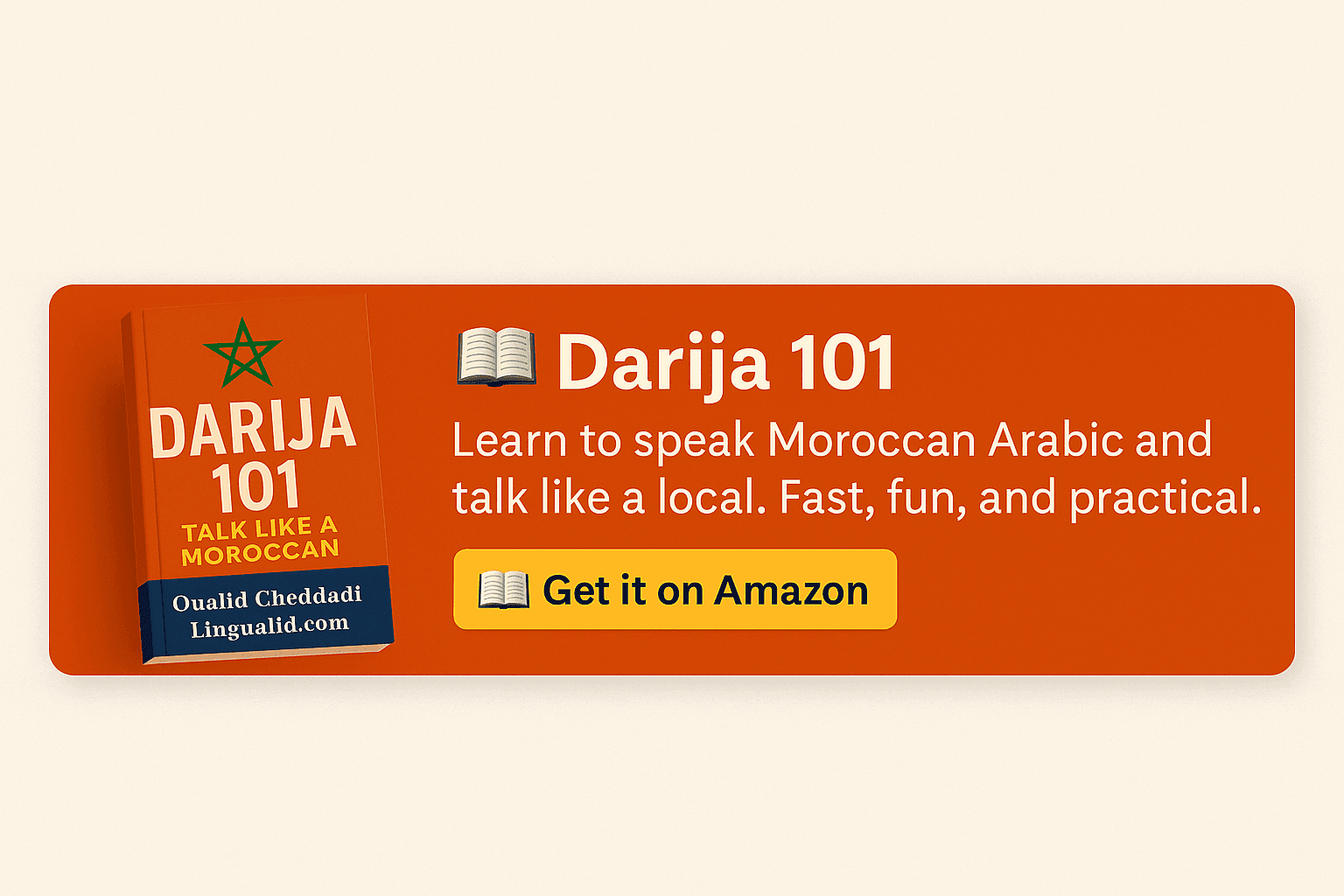
Moroccan Arabic: Self-Introduction Study Guide
Quiz
- How would you ask someone their name in Moroccan Arabic? Differentiate between asking a male and a female.
- Translate the following to Moroccan Arabic: “I am from Spain.”
- You want to know someone’s profession. Write the question you would use in Moroccan Arabic, addressing both a male and a female.
- Translate the phrase “I am a student” into Moroccan Arabic, providing both the male and female forms.
- Provide the Moroccan Arabic phrases for “I work” and “I study”.
- How do you ask someone where they live in Moroccan Arabic?
- What are the different ways to say “I am married” in Moroccan Arabic, specifying the gender of the speaker?
- Translate the following into English: “Shnu katqra?”
- If someone asks you “Shhal f 3emrek?” what are they asking you, and how would you respond (in Moroccan Arabic) that you are 25 years old?
- How do you say “Nice to meet you” in Moroccan Arabic?
Answer Key
- To a male, you would ask “Shnu smitek?” and to a female, you would ask “Shnu smitik?”
- “Ana men sbanya.”
- To a male: “Fash kheddam?” To a female: “Fash kheddama?”
- Male: “Ana talib.” Female: “Ana taliba.”
- “Kankhdem” (I work) and “Kanqra” (I study).
- “Fin kat3ish?” (to a male) and “Fin kat3ishi?” (to a female)
- Male: “Ana mzewej.” Female: “Ana mzewja.”
- “What do you study?” (addressed to a male)
- They are asking “How old are you?” You would respond: “3endi 25 3am.”
- “Mtsherrfin”
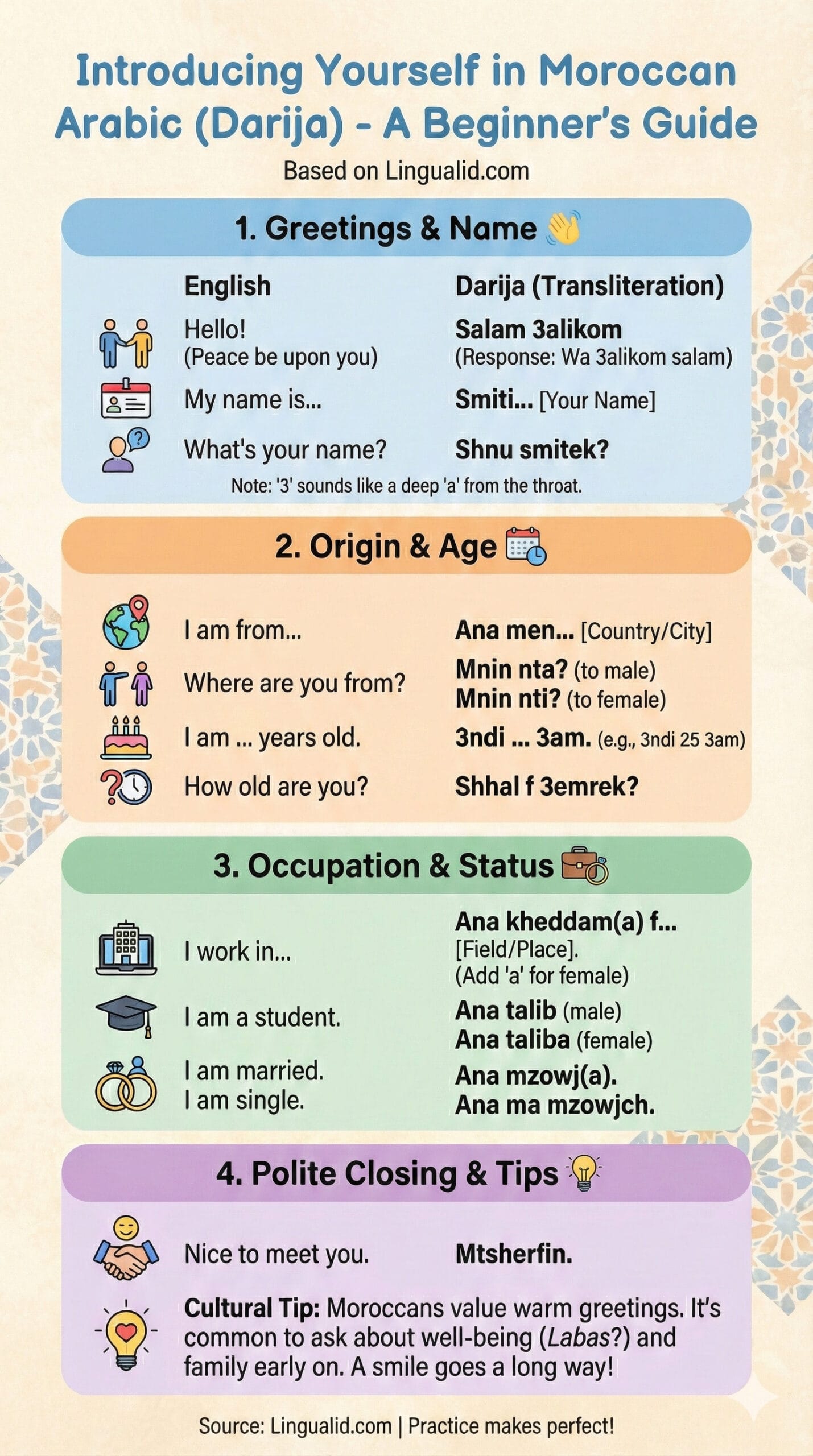
Oualid Cheddadi is the founder of Lingualid, a platform that inspires independent language learners worldwide, regardless of the language they are learning. The name “Lingualid” is derived from the Portuguese word for “language,” “língua,” and the last three letters of Oualid’s name, “Lid.”

